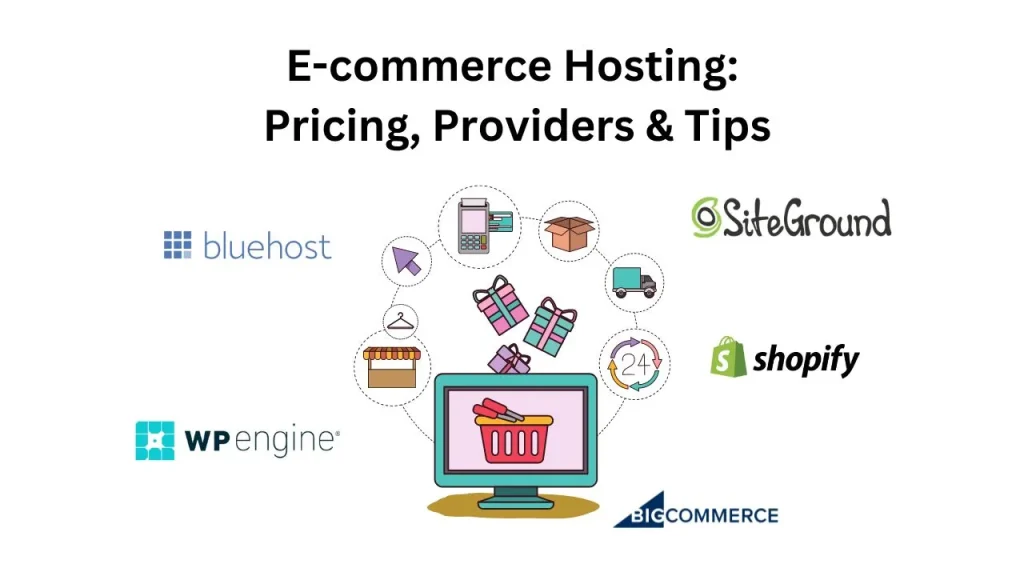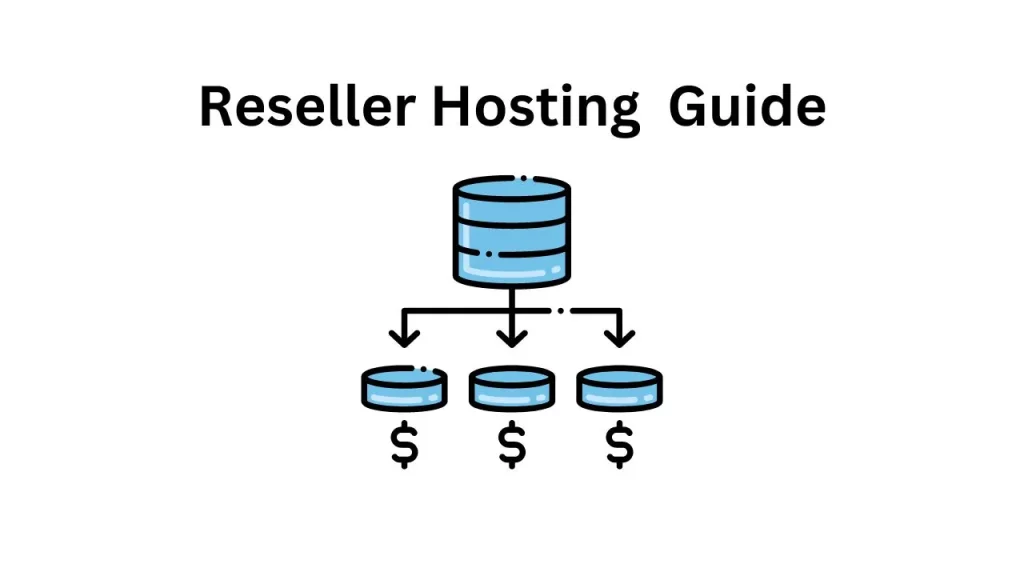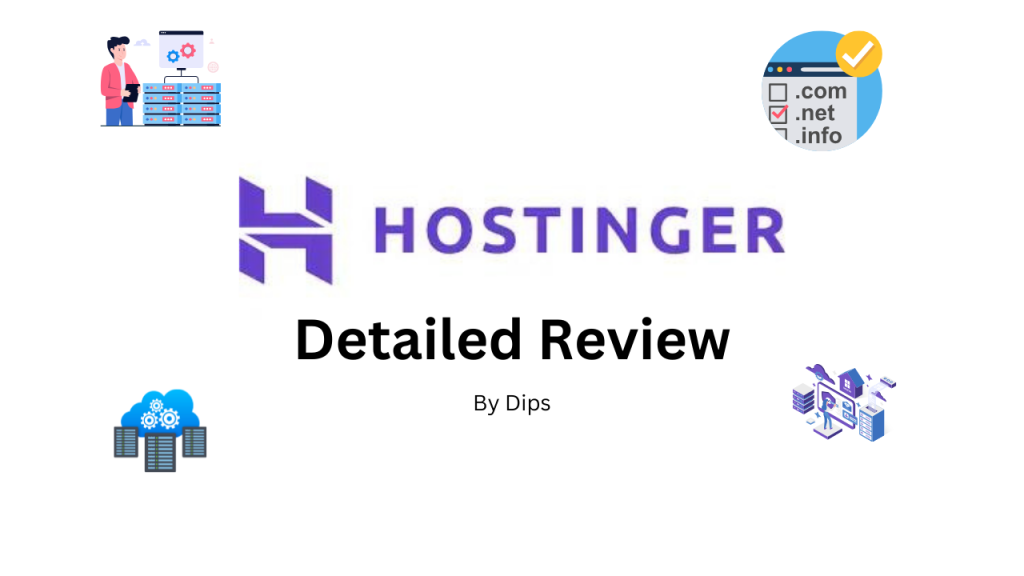Ever dreamt of launching your own online store? It’s an amazing adventure, but there are a few things to figure out first, like choosing the perfect hosting plan. This might sound complicated, but don’t worry! Your hosting plan is basically your store’s foundation – it keeps things running smoothly, protects your customers’ info, and lets you grow big as your business takes off.

In this blog post, we’ll be your friendly guide to e-commerce hosting. We’ll break down the important features you need, explore some popular hosting companies, and answer any questions you might have. By the end, you’ll be ready to choose the perfect plan and build a rock-solid foundation for your online store’s success!
Essential Features to Consider:
Type of Hosting:
- Shared Hosting: This option is budget-friendly and suitable for beginners with low traffic. However, resource limitations can affect performance during traffic spikes.
- VPS Hosting: Virtual Private Servers offer more control and scalability than shared hosting but come at a higher cost. Ideal for growing businesses with moderate traffic.
- Dedicated Hosting: Dedicated servers provide top-tier performance and full control over resources, making them ideal for high-traffic e-commerce stores. However, they come with the highest price tag.
- Cloud Hosting: Cloud-based solutions offer on-demand scalability and flexibility, making them suitable for handling unpredictable traffic surges. They often provide excellent performance and uptime.
Storage and Bandwidth:
- E-commerce sites require ample storage for product images, customer data, and order information. Choose a hosting plan that offers sufficient storage to accommodate your current needs and future growth.
- Bandwidth determines how efficiently your site can transfer data to visitors. Ensure your hosting plan provides adequate bandwidth to handle your expected traffic without slowdowns or additional charges.
Security:
- Security is non-negotiable for e-commerce websites. Look for hosting providers that offer Secure Sockets Layer (SSL) encryption to protect customer data during transactions.
- Additionally, ensure your hosting plan complies with Payment Card Industry (PCI) standards for secure payment processing. PCI compliance is essential for safeguarding sensitive financial information.
Performance:
- Page loading speed directly impacts user experience and can significantly affect your conversion rates. Choose a hosting provider that prioritizes performance by offering features like caching, Content Delivery Networks (CDNs), and server optimizations.
- Look for hosting providers with data centers located strategically around the world to ensure fast loading times for users across different geographical regions.
Scalability:
- As your e-commerce business grows, your hosting needs will evolve. Select a hosting plan that allows for seamless scalability, allowing you to upgrade resources such as CPU, RAM, and storage as needed.
- Some hosting providers offer scalable solutions where you can adjust resources dynamically based on fluctuating traffic levels, ensuring optimal performance during peak periods.
E-commerce Platform Compatibility:
- Ensure that the hosting provider supports your chosen e-commerce platform, whether it’s WooCommerce, Magento, Shopify, or another solution. Compatibility ensures seamless integration and optimal performance for your online store.
Popular E-commerce Hosting Providers:
Now let’s explore some of the most popular e-commerce hosting providers in detail:
Shopify E-commerce Hosting

Shopify has carved its niche as a leading all-in-one solution for e-commerce businesses. It’s a Software as a Service (SaaS) platform, meaning you don’t need to worry about server management or software installation. This translates to a user-friendly experience with built-in features and the potential to scale your online store as it grows. Let’s delve deeper into the pros and cons of Shopify for e-commerce hosting:
Pros:
- Effortless Setup: Shopify boasts a user-friendly interface that makes setting up your online store a breeze. Even those with limited technical experience can get their store up and running quickly, thanks to intuitive tools and drag-and-drop functionality.
- All-in-One Solution: Shopify goes beyond just hosting. It provides a comprehensive suite of features for managing your e-commerce business, including product listings, inventory management, secure payment processing, marketing tools, and built-in analytics. This eliminates the need for multiple integrations and simplifies store management.
- Extensive App Marketplace: The Shopify App Store offers a vast library of apps and extensions that cater to various e-commerce needs. You can find apps for enhancing product pages, adding shipping options, integrating social media channels, and implementing loyalty programs. This allows you to customize your store’s functionality to fit your specific requirements.
- Scalability for Growth: Shopify offers different pricing tiers with varying resource allocations. As your business expands and traffic increases, you can seamlessly upgrade your plan to accommodate the growth without worrying about migration complexities. This ensures your store can handle increasing traffic volumes without performance issues.
- Relatively Affordable Starting Point: Shopify plans start at $29 per month, making it an accessible option for small businesses and entrepreneurs starting their e-commerce journey. This can be a cost-effective way to get your online store launched without a large upfront investment.
Cons:
- Less Customization Compared to Self-Hosted Platforms: While Shopify offers a wide range of features and apps, it doesn’t offer the same level of customization as self-hosted platforms like WordPress. You have some control over the look and feel of your store through themes, but extensive code modifications might be limited.
- Transaction Fees: Shopify charges transaction fees for using their built-in payment processing system. This can eat into your profits, especially for businesses with high transaction volumes. You can integrate third-party payment gateways, but additional fees might apply depending on the chosen provider.
- Vendor Lock-In: Since Shopify is a closed system, you’re essentially locked into their platform. Migrating your store to another platform in the future can be a complex and time-consuming process.
Overall:
Shopify is a powerful solution for businesses seeking a user-friendly, all-in-one e-commerce platform. Its ease of setup, built-in features, scalability, and extensive app marketplace make it a compelling choice for entrepreneurs and small businesses. However, if you require extensive customization or are concerned about vendor lock-in, a self-hosted platform might be a better fit in the long run. Consider your budget, technical expertise, and desired level of control when making your decision.
BigCommerce E-commerce Hosting

BigCommerce stands out as a robust SaaS (Software as a Service) platform catering to the needs of growing e-commerce businesses. It boasts a feature-rich environment, scalability to handle significant traffic volumes, and responsive customer support. Here’s a closer look at the advantages and disadvantages of BigCommerce for e-commerce hosting:
Pros:
- Scalable Infrastructure: BigCommerce prioritizes scalability with a robust infrastructure designed to handle high traffic volumes and large product catalogs. This ensures your online store can grow seamlessly without experiencing performance bottlenecks as your customer base expands.
- Advanced Marketing Tools: BigCommerce offers a comprehensive set of built-in marketing tools, including SEO features, email marketing capabilities, coupon codes, and abandoned cart recovery. These tools empower you to attract new customers, retain existing ones, and boost your online sales.
- Responsive Customer Support: BigCommerce is known for its excellent customer support, providing various resources and channels to assist users. Whether you encounter technical difficulties or have questions about using the platform, their dedicated support team is available to help.
- B2B Features (For Enterprise Plans): BigCommerce offers advanced features specifically tailored for B2B (business-to-business) e-commerce needs on their enterprise plans. These features include functionalities like customer groups, tiered pricing, and custom quotes, making it a strong contender for businesses in the B2B space (on higher-tier plans).
- Multi-Store Management: A unique advantage of BigCommerce is the ability to manage multiple storefronts under a single account. This is ideal for businesses that operate multiple brands or cater to different geographic regions.
Cons:
- Higher Pricing Compared to Competitors: BigCommerce plans start at $80 per month, which is a higher price point compared to some competitors like Shopify. This can be a deciding factor for smaller businesses with tighter budgets.
- Limited Customization Options for Beginners: While BigCommerce offers a good degree of design flexibility, beginners might find the initial setup process and theme customization options a bit more complex compared to platforms like Wix or Squarespace.
Overall:
BigCommerce is a powerful e-commerce hosting solution ideal for medium to large-sized businesses with significant growth potential. Its robust feature set, scalability, advanced marketing tools, and responsive customer support make it a strong contender for businesses that require a platform capable of handling high traffic volumes and complex product catalogs. However, the higher pricing point compared to some competitors and the potentially steeper learning curve for beginners are factors to consider when making your choice.
WPEngine E-commerce Hosting

WPEngine stands out as a managed WordPress hosting provider, specifically catering to websites built on the popular platform. Their offerings prioritize exceptional performance, robust security features, and top-notch WordPress expertise – ideal for e-commerce businesses running WooCommerce stores. Let’s explore the advantages and disadvantages of WPEngine for e-commerce hosting:
Pros:
- High-Performance Infrastructure: WPEngine boasts a top-tier infrastructure specifically optimized for WordPress. This translates to fast loading times, critical for a smooth customer experience on your e-commerce store. Speed is essential to keep visitors engaged and conversions high.
- Automatic Updates and Backups: WPEngine takes the worry out of managing your WordPress installation. They handle automatic updates for both WordPress core and plugins, ensuring your site stays secure and up-to-date with the latest features and bug fixes. Additionally, automatic backups provide a safety net in case of unforeseen issues.
- Expert WordPress Support: Unlike many general web hosting providers, WPEngine’s support team consists of WordPress specialists. This is a major benefit for users who might encounter WordPress-specific problems. You’ll have access to knowledgeable professionals who can assist you effectively.
- Enhanced Security Features: WPEngine prioritizes security with features like built-in firewalls, malware scanning, and distributed denial-of-service (DDoS) protection. These measures safeguard your e-commerce store from security threats, protecting customer data and ensuring a smooth operation.
- Scalability for Growth: WPEngine offers various hosting plans with different resource allocations. As your e-commerce store grows and traffic increases, you can easily upgrade to a plan with more processing power and storage to accommodate your needs. This allows you to scale seamlessly without worrying about performance limitations.
Cons:
- Primarily for WordPress Websites: If you’re not using WordPress for your e-commerce store, WPEngine might not be the best fit. Their services and features are geared specifically towards WordPress-based websites.
- Higher Pricing Compared to Shared Hosting: WPEngine’s pricing starts at $35 per month, which is significantly higher than basic shared hosting plans. This can be a deciding factor for budget-conscious e-commerce startups.
- Limited Customization: Since WPEngine is a managed hosting service, they handle server configuration and maintenance. This can limit the level of customization you have access to compared to self-managed hosting options.
Overall:
WPEngine is an excellent choice for e-commerce businesses running WordPress stores that prioritize performance, security, and ease of management. Their expert support and focus on WordPress make them a strong contender for businesses willing to invest in a premium hosting solution. However, if you’re on a tight budget or your online store uses a different platform, a more affordable shared hosting plan from another provider might be a better starting point.
Bluehost E-commerce Hosting

Bluehost is a popular web hosting provider that offers a variety of solutions for e-commerce websites. This includes shared hosting, VPS hosting, and dedicated hosting plans, all with features to support your online store.
Here’s a deeper dive into Bluehost e-commerce hosting, including its pros, cons, and pricing:
Pros:
- Affordable Pricing: Bluehost’s shared hosting plans are a budget-friendly option for beginners, starting at just $3.95 per month. This makes it a good choice for those who are just starting out with their online store and don’t expect massive traffic volumes initially.
- User-Friendly Interface: Bluehost’s control panel is known for being intuitive and easy to navigate. This is a major benefit for those who are not familiar with web hosting or have limited technical experience. Even if you’re new to building websites, you’ll find it straightforward to manage your online store’s hosting needs.
- 24/7 Customer Support: Bluehost offers 24/7 customer support via phone, chat, and email. This is a valuable resource, especially for beginners who might encounter technical issues or have questions about setting up their e-commerce store.
- Free SSL Certificate: Security is crucial for e-commerce websites. Bluehost offers a free SSL certificate with all hosting plans, which encrypts customer data and builds trust with your visitors.
- Free Domain Name (For a Limited Time): Bluehost often includes a free domain name for the first year of your hosting plan. This can be a cost-saving benefit, especially when you’re just starting your online store.
- WordPress Integration: Bluehost offers seamless WordPress integration, making it a good choice for those who want to build their online store using the popular WooCommerce plugin.
Cons:
- Shared Hosting Limitations: While affordable, shared hosting has limitations. As your e-commerce store grows and attracts more traffic, you might experience performance issues like slower loading times. Shared hosting resources are shared amongst multiple websites, so a surge in traffic on another website can impact your own site’s performance.
- Limited Scalability: Shared hosting plans don’t offer a lot of room for growth. Upgrading to a VPS or dedicated hosting plan can be expensive, and there might be downtime involved during the migration process.
- Renewal Price Increase: Be aware that Bluehost’s introductory pricing is often only valid for the first term. Renewal rates can be significantly higher, so factor that into your long-term budget planning.
- Upselling During Checkout: Bluehost is known for offering additional features and services during checkout, which can inflate your initial cost if you’re not careful.
Overall:
Bluehost e-commerce hosting is a solid option for beginners who are starting a small online store and are on a budget. However, if you expect high traffic volumes or plan for significant growth, you might need to consider a more scalable hosting solution like VPS or dedicated hosting in the future.
SiteGround E-commerce Hosting

SiteGround positions itself as a versatile web hosting provider offering shared, cloud, and dedicated hosting plans with features specifically designed for e-commerce websites. They cater to various business needs with plans starting at $6.99/month. Let’s explore the pros and cons of SiteGround for e-commerce hosting:
Pros:
- Feature-Rich Hosting Solutions: SiteGround goes beyond basic hosting, offering features like built-in caching, Content Delivery Networks (CDNs), and automatic WordPress updates (for WordPress plans). These features work together to optimize website performance and ensure a smooth customer experience on your e-commerce store.
- Developer-Friendly Environment: SiteGround caters to developers with tools like Git access, one-click staging environments, and WP-CLI compatibility (for WordPress plans). This allows for easier development workflows and customization of your e-commerce store.
- Excellent Customer Support: SiteGround is known for its responsive and knowledgeable customer support team. Whether you have technical questions or need assistance with your e-commerce setup, their support team is available to help via phone, chat, and email.
- Security Focus: SiteGround prioritizes security with features like automatic SSL certificates, regular security updates, and proactive monitoring to safeguard your e-commerce store and customer data.
Cons:
- Pricing Might be Higher for Basic Needs: While SiteGround offers competitive pricing, it might be slightly more expensive compared to some basic shared hosting plans from other providers. If you have a simple website with low traffic and don’t require extensive features, a budget-friendly shared plan from another provider might suffice.
- Limited Storage on Shared Hosting Plans: SiteGround’s shared hosting plans come with varying storage capacities. If you have a large product catalog with high-resolution images, the storage space on a basic shared plan might be insufficient. Upgrading to a cloud or dedicated plan would be necessary for increased storage needs.
Overall:
SiteGround is a strong choice for e-commerce businesses seeking a feature-rich hosting environment with developer-friendly tools and excellent customer support. Their focus on performance, security, and scalability makes them a compelling option for businesses looking to grow. However, if you’re on a tight budget with basic e-commerce needs, a more affordable shared hosting plan from another provider might be a suitable starting point.
E-commerce Hosting Comparison: Pricing, Pros, and Cons
| Provider | Pricing (Starts at) | Ideal For | Pros | Cons |
|---|---|---|---|---|
| Shopify | $29/month | Beginners, Small Businesses | Easy setup, All-in-one solution, Extensive app marketplace | Less customization, Transaction fees, Vendor lock-in |
| BigCommerce | $80/month | Medium to Large Businesses | Scalable infrastructure, Advanced marketing tools, Responsive customer support | Higher pricing, Limited customization for beginners (especially on lower plans) |
| WPEngine | $35/month | WordPress-based E-commerce Stores | High-performance infrastructure, Automatic updates & backups, Expert WordPress support | Primarily for WordPress, Higher pricing compared to shared hosting, Limited customization |
| Bluehost | $3.95/month | Beginners, Budget-conscious Businesses | Affordable pricing, User-friendly interface, 24/7 customer support | Shared hosting limitations (performance, scalability), Renewal price increase, Upselling during checkout |
| SiteGround | $6.99/month | Businesses & Developers (all sizes) | Feature-rich solutions, Developer-friendly environment, Excellent customer support | Pricing might be higher for basic needs, Limited storage on shared hosting plans |
Additional Notes:
- Pricing can change, so it’s always recommended to check the provider’s website for current pricing information.
- This table is a simplified comparison, and each provider offers various plans with different features and pricing tiers.
- The “Ideal For” column is a suggestion, and the suitability can vary depending on your specific needs and budget.
Key Considerations When Choosing:
- Traffic Volume: How much traffic do you expect your e-commerce store to receive? Shared hosting might be sufficient for low traffic, while high-traffic stores might require cloud or dedicated hosting.
- Technical Expertise: Are you comfortable managing technical aspects of your website, or do you prefer a user-friendly, all-in-one solution?
- Customization Needs: How much control do you want over the look and feel of your e-commerce store?
- Budget: Consider your budget and the long-term costs associated with each hosting provider.
By carefully evaluating your needs and comparing the options in this table, you can choose the best e-commerce hosting solution for your online store.
Frequently Asked Questions (FAQs):
Q: Do I need SSL for my e-commerce website?
A: Yes, SSL (Secure Sockets Layer) encryption is essential for securing sensitive information such as customer data and payment details. It helps establish a secure connection between your website and your customers’ browsers, ensuring data privacy and integrity.
Q: Can I switch hosting providers later if needed?
A: Yes, most hosting providers offer migration services to help you transfer your website from one host to another. However, it’s essential to choose a hosting provider that allows for seamless scalability and easy migration to avoid disruptions to your business operations.
Q: What factors should I consider when choosing an e-commerce platform?
A: When selecting an e-commerce platform, consider factors such as ease of use, customization options, scalability, integrations with third-party tools, and pricing. Choose a platform that aligns with your business goals and technical requirements.
Conclusion:
Choosing the right hosting plan for your e-commerce website is a crucial decision that can impact your business’s success. By considering factors such as hosting type, storage and bandwidth, security, performance, scalability, and e-commerce platform compatibility, you can make an informed choice that meets your specific needs and budget.
While there are many hosting providers available, it’s essential to research thoroughly, read reviews, and consider your long-term business goals before making a decision. Whether you opt for a SaaS platform like Shopify or a self-hosted solution like WPEngine, prioritize reliability, security, and scalability to set your e-commerce venture up for success. Remember, the best hosting provider is the one that meets your unique requirements and helps you achieve your business objectives effectively.

